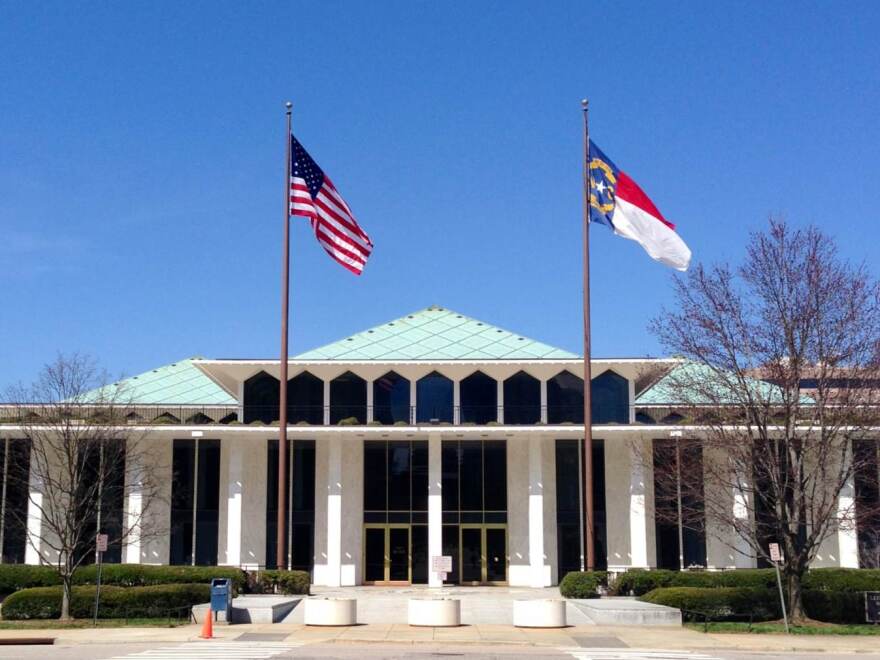The biggest piece of legislation expected when North Carolina law makers return from the Memorial Day weekend is the Senate’s budget proposal for the fiscal year, which starts July 1. The office of Rules Committee Chairman Sen. Tom Apodaca (R-Hendersonville) said on Friday that a budget could be made public this week, and the office of Senate President Pro-Tem Phil Berger Jr. (R-Eden) similarly said a budget will be released “in the coming days.”
It’s unclear how big of a departure it will be from Gov. Pat McCrory’s $21 billion proposal, which he released May 14, because few details have been publicly released about it. One major question is how it will address the subject of pay for public school teachers, whose average salary is the 46th lowest in the country and has been practically frozen since 2008. The centerpiece of McCrory’s proposal is a $263 million provision for teacher raises, amounting to an increase of 2 to 4.3 percent.
Here are three other significant pieces of legislation we’re following:
Regulatory And Tax Overhaul
The House of Representatives may consider this week a bill that encourages industries to self-report environmental violations to the state or to seek a voluntary compliance audit, which environmental groups say could allow polluters to contaminate the state’s air and water without public scrutiny.
The Regulatory Reform Act of 2014, (which the Senate tentatively approved on Thursday and is scheduled to finalize on Wednesday) seeks to update dozens of regulations that, according to the bill’s sponsors -- Trudy Wade (R-Greensboro), Brent Jackson (R- Autryville) and Andrew Brock (R-Davie) -- are ambiguous, onerous and burdensome to businesses, the Associated Press reported.
The North Carolina Sierra Club and the Southern Environmental Law Center say they’re concerned about a provision under which the state would encourage businesses to self-report environmental violations by keeping confidential audits pertaining to the violations and waiving civil penalties or fines. This makes it possible for business to not keep in place best environmental practices, Sierra spokesman Dustin Chicurel-Bayard said.
But Senate President Pro-Tem Phil Berger Jr. said changes to the state’s regulations and taxes would have positive outcomes and are overdue. “This common sense bill is another step to strengthen opportunities for new investment and job growth,” he said.
Fracking Permits
The House of Representatives may take up a bill that would allow the state to issue permits for hydraulic fracturing (also known as "fracking") starting July 1, 2015, lifting a de-facto moratorium on the industry.
The Energy Modernization Act, which the Senate approved and sent to the House in a 35-12 vote on Thursday, would allow the Department of Environment and Natural Resources to issue permits, replacing a law that requires the legislature to adopt safety rules to govern fracking before issuing permits. The Mining and Energy Commission is scheduled to present the rules to the legislature by January. A proposal to lift the moratorium failed in the House last year.
The bill makes it a misdemeanor for anyone to disclose fracking chemicals deemed trade secrets (an earlier version of the bill made it a felony). It requires fracking operators to have at least a $1 million bond protection in the event of accidents during in the extraction process.
Pension Spiking Prevention
A bill that would prevent highly-paid state and local employees from using employment perks to boost their pensions may go before the House of Representatives Committee on State Personnel.
The bill, No. 1995, would limit some public employees’ and their employers’ contributions to pension funds. It would affect only employees whose four highest-years of pay was $100,000 or more, representing less than 1 percent of state or local employees in North Carolina.
Reps. Jeff Collins (R-Rocky Mount) and Stephen Moss (R-Burlington) introduced the bill after an investigation by the Raleigh News & Observer found that the community college presidents and community college boards from Cape Fear, Central Piedmont, Sandhills and Wilkes converted tens of thousands of dollars in perks such as car and housing allowances into salary money. Perks are typically not eligible to be considered for pension contributions.








